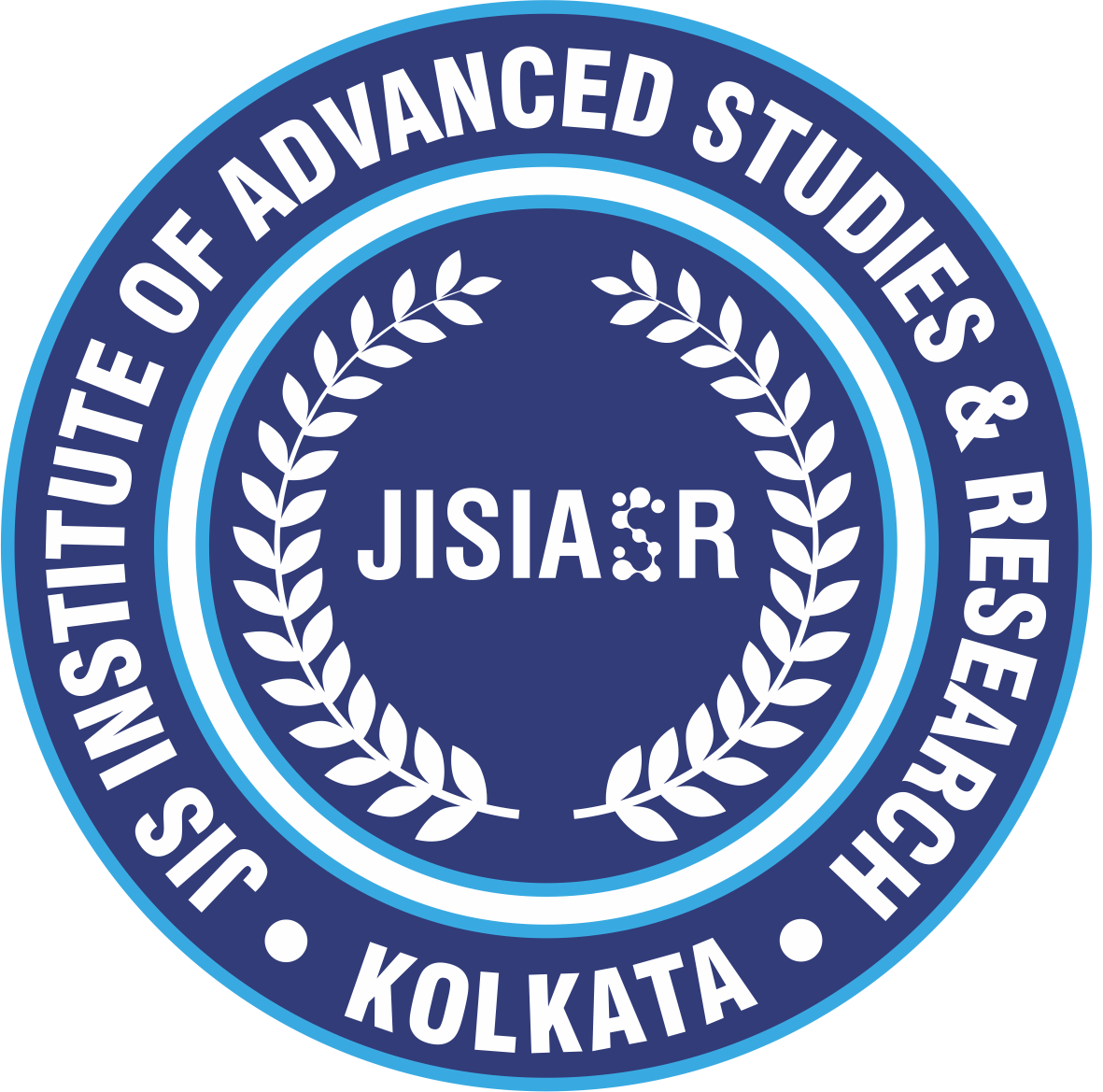Assistant Professor
Centre for Health Science & Technology
Email: rachana@jisiasr.org
Google Scholar: https://scholar.google.com/citations?user=CBsU258AAAAJ&hl=en
Postdoctoral Fellow, Department of Structural biology and Bioinformatics, CSIR-Indian Institute of Chemical Biology, Kolkata.
Ph.D., Department of Department of Biophysics, Molecular Biology and Bioinformatics, University of Calcutta, Kolkata.
Research Topics:
Molecular Evolution, Extremophilic adaptations, Host-virus interaction, Bacterial Pathogenesis, Comparative Genomics, Human Microbiome
Research Focus:
The genomic and proteomic signature of an organism not only shapes its phylogenetic positioning but also reflects its adapted lifestyle. With the advancements in genomics and high-throughput sequencing technologies, a novel perspective on biology has emerged. My focus lies in employing computational data mining approaches to extract valuable information from the vast pool of available data. Four main research areas capture my primary interest:
1. Investigating the evolutionary intricacies of genes and genomes, particularly their survival strategies under stressed conditions.
Microbes, renowned for their adaptability, exhibit distinct genomic and proteomic signatures. Examining extremophilic bacterial groups like Deinococcus-Thermus and Shewanella has unveiled specific patterns enabling them to thrive in unique environments.
2. Developing a model to characterize viral strains based on their pandemic potential.
Studying the 2009 H1N1 virus outbreak, I identified a unique amino acid usage pattern in hemagglutinin (HA) genes, contributing to its infectiousness and global health threat. Further analysis indicated increased potential for antibody escape, enhancing pathogenicity in the 2013 and 2014 H1N1 samples.
3. Analyzing the impact of host factors on viral infections.
Genes encoding env glycoproteins face stringent selection constraints from the host immune system. My findings suggest that env gene evolution primarily occurs through negative selection, with mutations not necessarily reaching fixation in the viral population.
4. Scrutinizing genomic signatures of pathogenic microbes adapting to adverse conditions imposed by host immune responses or antibiotics.
Studying Vibrio cholerae, particularly its pandemic clones in Asia and Africa over the last decade, revealed various mobile genetic elements driving pathogen evolution. This knowledge serves as a marker distinguishing seventh pandemic clones with similar core genomes, emphasizing the imprudent use of antibiotics against V.cholerae.
Current research focus:
1. Deciphering the molecular signatures within microbial genomes responsible for hospital-acquired or nosocomial infections, revealing insights into their evolutionary and adaptation strategies.
These microbial groups, categorized as “opportunistic pathogens,” exhibit limited pathogenicity and are incapable of infecting healthy individuals; instead, they rely on immuno-compromised individuals to trigger disease. My interest lies in exploring novel aspects related to genomic diversities, speciation, and host resistance features within these microbial genomes. Additionally, I aim to devise effective strategies for infection prevention and predict the types of infections caused by opportunistic pathogens in immune-compromised hosts. This involves studying the evolutionary patterns of drug resistance, disease progression, and host adaptation in chronically infected patients.
2. Unraveling the functional attributes of the human microbiome, the collective genetic material of microbiota, crucial for understanding their role in host metabolism and disease.
My goal is to pinpoint molecular biomarkers that can accurately classify specific diseases by correlating variations in the taxonomic and metabolomic profiles of the microbiome in both diseased and healthy states.
Awards & Achievements
1. Post-Doctoral Research Associateship in Biotechnology and Life Sciences (January 2016 – June 2019), DBT, Govt. of India.
2. Research Fellowship in Sciences for Meritorious Students (November 2012 – October 2014), UGC, India.
3. Trainee under traineeship programme (May 2009 – November 2011), Distributed Information Centre, DBT, Govt. of India.
4. Trainee in the Studentship/Traineeship programme (November 2008 – April 2009), Centre of Excellence in Bioinformatics, DBT, Govt. of India.
Journals
1. Chowdhury RR, Dhar J, Robinson SM, Lahiri A, Basak K, Paul S, Banerjee R. MACI: A machine learning-based approach to identify drug classes of antibiotic resistance genes from metagenomic data. Computers in Biology and Medicine. 2023 Dec 1;167:107629.
2. Saleem S, Banerjee R, Rajesh Kannan R. (2022). Chrysin-Loaded Chitosan Nanoparticle-Mediated Neuroprotection in Aβ1–42-Induced Neurodegenerative Conditions in Zebrafish. ACS Chemical Neuroscience. 13(13):2017-34.
3. Basak T, Dey AK, Banerjee R, Paul S, Maiti TK, Ain R. (2021). Sequestration of eIF4A by angiomotin: A novel mechanism to restrict global protein synthesis in trophoblast cells Stem Cells. 39(2):210-26.
4. Banerjee R, Chaudhari NM, Lahiri A, Gautam A, Bhowmik D, Dutta C, Chattopadhyay S, Huson DH, Paul S. (2021). Interplay of Various Evolutionary Modes in Genome Diversification and Adaptive Evolution of the Family Sulfolobaceae. Frontiers in Microbiology. 1373.
5. Banerjee R, Basak K, Ghosh A, Rajachandran V, Sureka K, Ganguly D, Chattopadhyay S. (2021). Spike protein mutational landscape in India during the complete lockdown phase: Could Muller’s ratchet be a future game-changer for COVID-19? Infection, Genetics and Evolution. 92:104874.
6. Banerjee R, Shine O, Rajachandran V, Krishnadas G, Minnick MF, Paul S, Chattopadhyay S. (2019). Gene duplication and deletion, not horizontal transfer, drove intra-species mosaicism of Bartonella henselae. Genomics. S0888-7543(18)30730-4.
7. Roy A, Banerjee R, Basak S (2017) HIV Progression depends on codon and amino acid usage profile of envelope protein and associated host-genetic influence. Frontiers in Microbiology. 8:1083.
8. Banerjee R, Roy A, Das S, and Basak S (2015) Similarity of currently circulating H1N1 virus with the 2009 pandemic clone: Viability of an imminent pandemic. Infection, Genetics and Evolution. 32: 107–112.
9. Chakraborti P, Banerjee R, Roy A, Mandal S, and Mukhopadhyay S (2015) Molecular characterization influencing metal resistance in the Cupriavidus/Ralstonia genomes. Journal of Biomolecular Structure and Dynamics. 7:1-17.
10. Pal A, Banerjee R, Mondal UK, Mukhopadhyay S, and Bothra AK (2015) Deconstruction of archaeal genome depict strategic consensus in core pathways coding sequence assembly. PLoS One. 10: e0118245.
11. Banerjee R, Chakraborti P, Bhowmick R, and Mukhopadhyay S (2014) Distinct molecular features facilitating ice-binding mechanisms in hyperactive antifreeze proteins closely related to an Antarctic Sea ice bacterium. Journal of Biomolecular Structure and Dynamics. 5: 1-18.
12. Banerjee R, Das B, Balakrish Nair G, and Basak S (2014) Dynamics in genome evolution of Vibrio cholerae. Infection, Genetics and Evolution. 23:32-41.
13. Raychaudhuri S, Banerjee R, Mukhopadhyay S, and Bhattacharyya NP (2014) Conserved C- terminal nascent peptide binding domain of HYPK facilitates its Chaperone like activity. Journal of Biosciences. 39:1–14.
14. Banerjee R, Roy A, and Mukhopadhyay S (2014) Genomic and proteomic signatures of radiation and thermophilic adaptation in the Deinococcus-Thermus genomes. International Journal of Pharmacy and Pharmaceutical Sciences. 6:287-300.
15. Banerjee R and Mukhopadhyay S (2012) Niche specific amino acid features within the core genes of the genus Shewanella. Bioinformation. 8: 938-942.
16. Dasgupta A, Banerjee R, Das S, and Basak S (2012) Evolutionary perspective on the origin of Haitian cholera outbreak strain. Journal of Biomolecular Structure and Dynamics. 30(3): 338-346.
17. Banerjee R, Roy A, Ahmad F, Das S, and Basak S (2012) Evolutionary patterning of hemagglutinin gene sequence of 2009 H1N1 pandemic. Journal of Biomolecular Structure and Dynamics. 29(4):733742.
18. Basak S, Banerjee R, Mukherjee I, and Das S (2009) Influence of domain architecture and codon usage pattern on the evolution of virulence factors of Vibrio cholerae. Biochemical and Biophysical Research Communications. 379:803-805.
19. Banerjee R and Roy D (2009) Codon usage and gene expression pattern of Stenotrophomonas maltophilia R551-3 for pathogenic mode of living. Biochemical and Biophysical Research Communications. 390:177-181.


